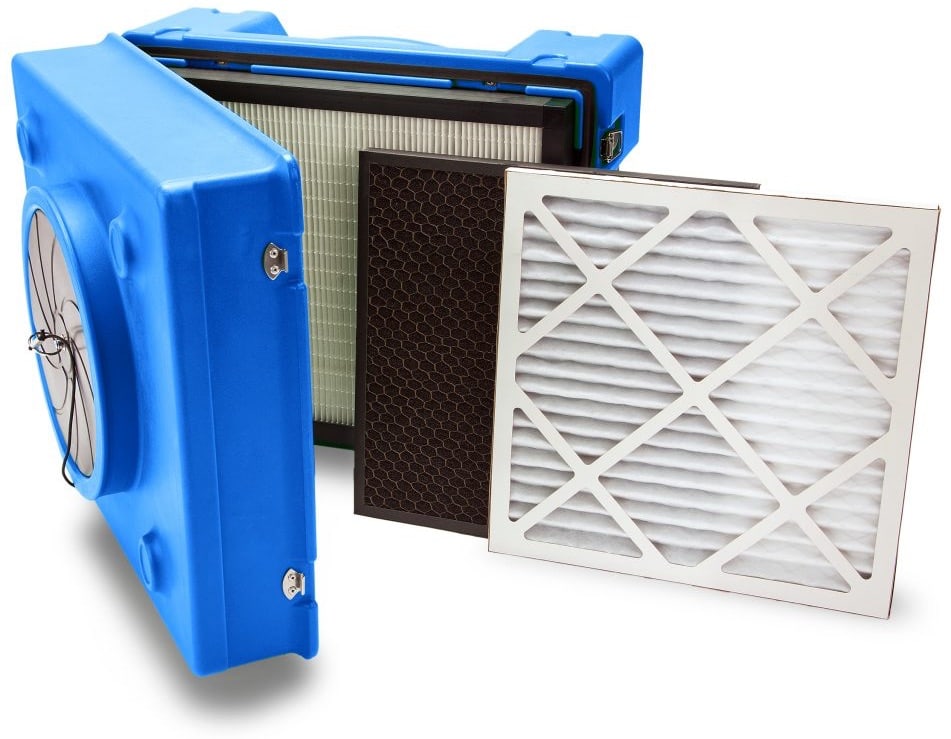Air scrubbers utilize a variety of filters. When looking at replacement commercial air scrubber filters, or at a unit’s features, you’ll find a variety of terms including filter, pre-filter, primary filter, HEPA filter and carbon filter.

Review the various types of air scrubber filters and their features and benefits below.
Pre-filters
A pre-filter is the first filter airflow passes through. This filter captures the largest particles, allowing smaller ones to pass through. Pre-filters are generally changed the most frequently.
Primary filters
The primary filter is usually the last step of filtration. It traps the smallest particles passing through the air scrubber, those as small as 0.03 microns in diameter.
HEPA filters
Most air scrubbers and purifiers leverage HEPA (high-efficiency particulate air) filters to capture smoke, pet dander, pollen, dust mites and other harmful particulates. Made from glass or plastic fibers, HEPA filters often serve as an air scrubber’s primary filter.
Carbon filters
Carbon air filters capture gas and vapor molecules through the process of absorption. These molecules are what we know as odors. Carbon filters are usually an optional level of filtration when available. When used for remediation carbon filters can remove various smells including those from smoke and chemicals. Carbon filters typically remove particles in the 0.5 to 50 micrometer size range.
